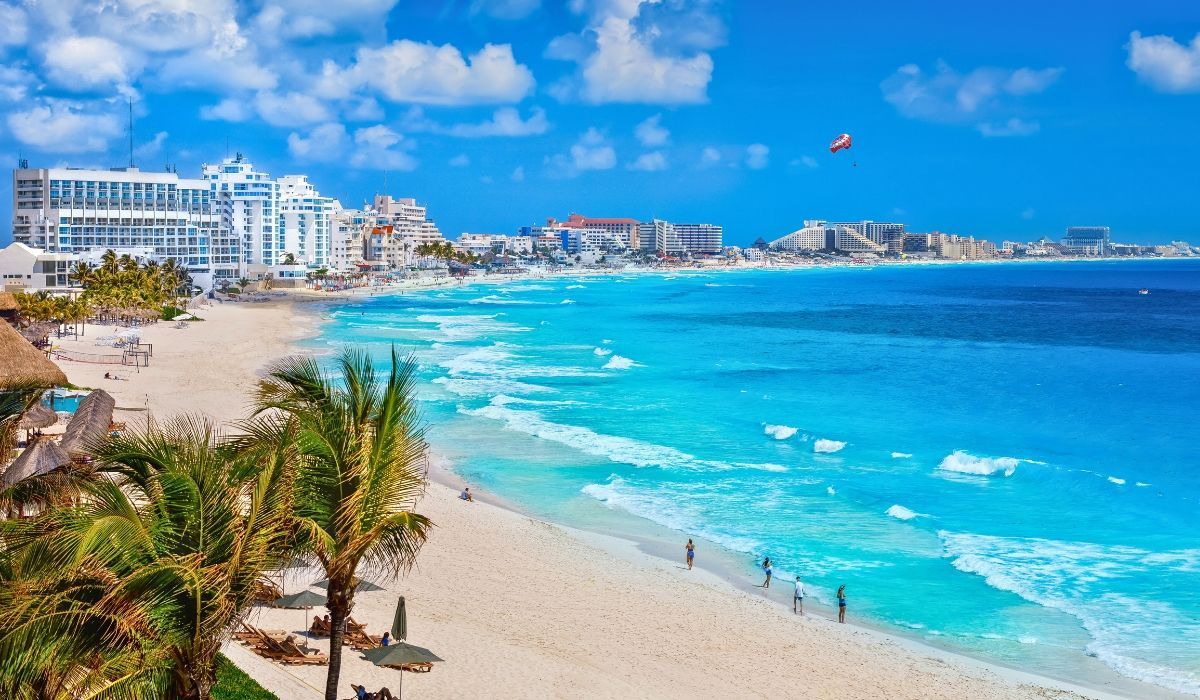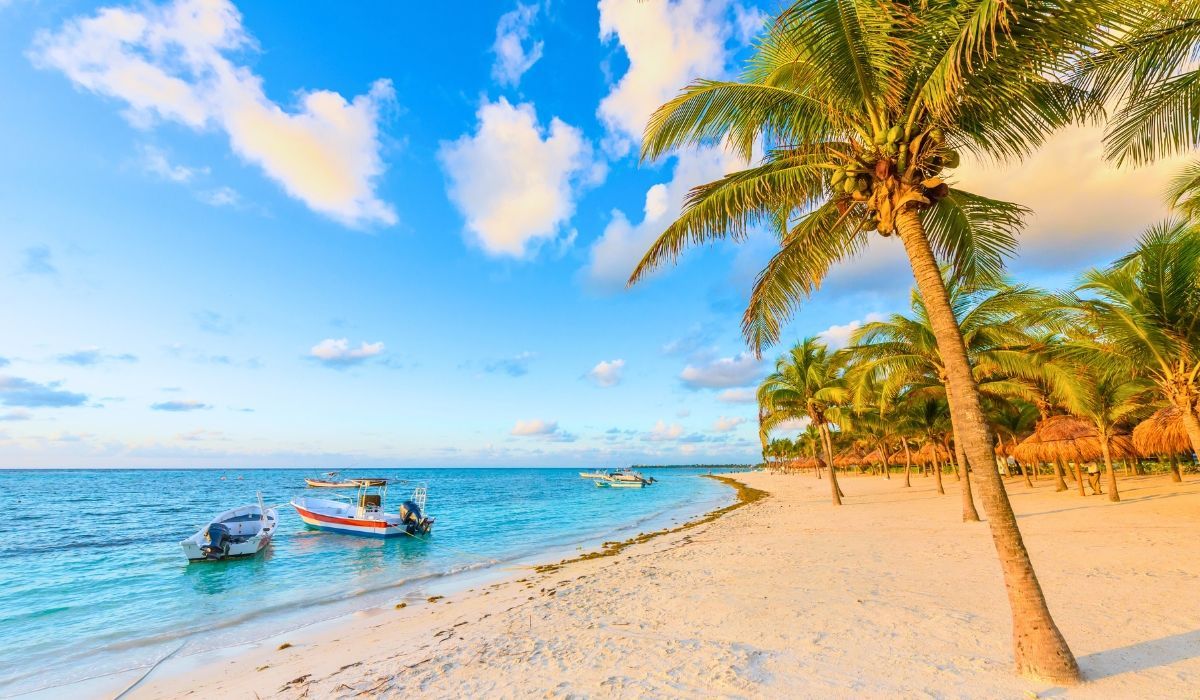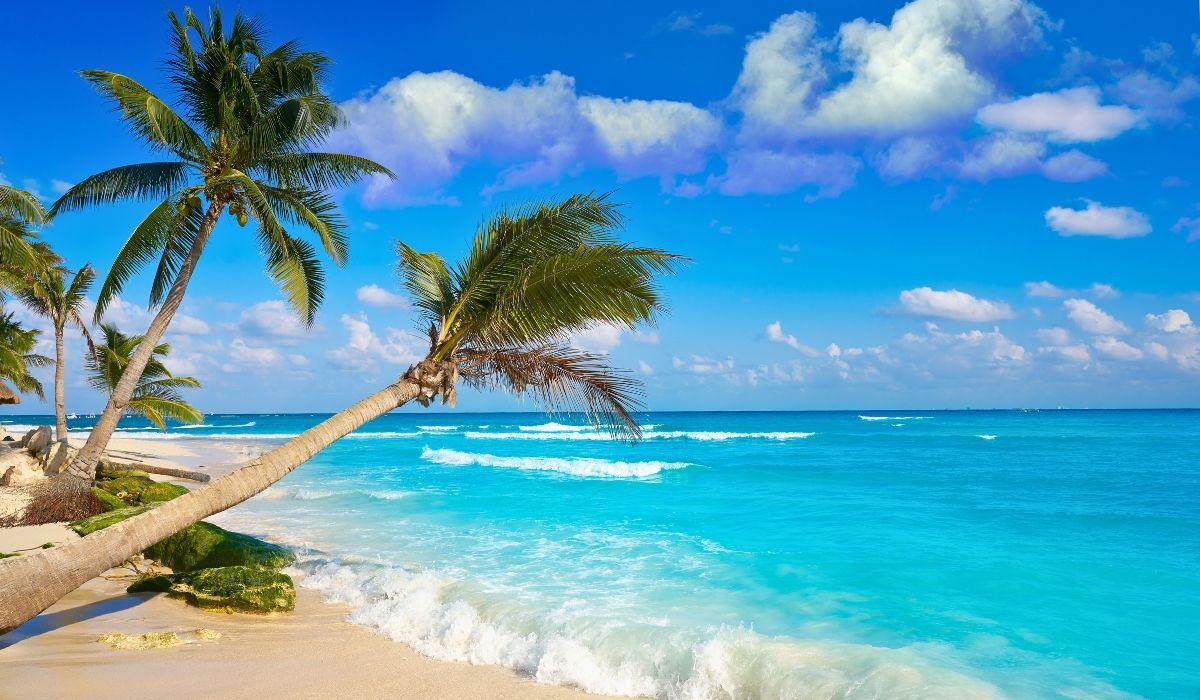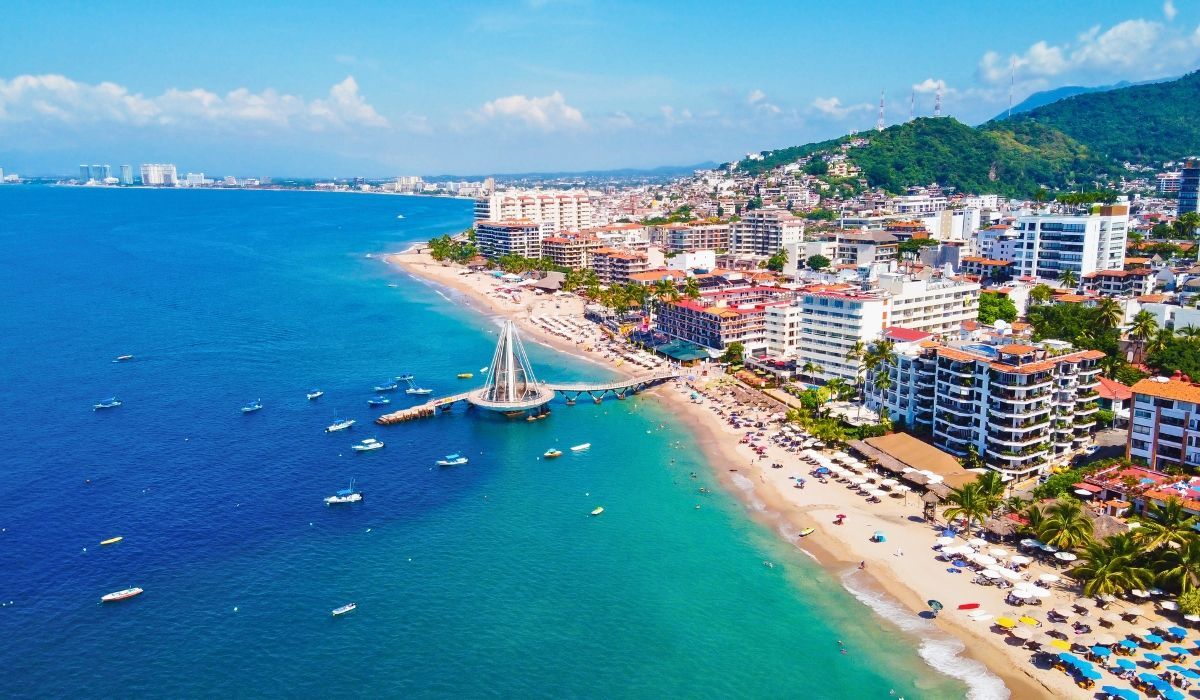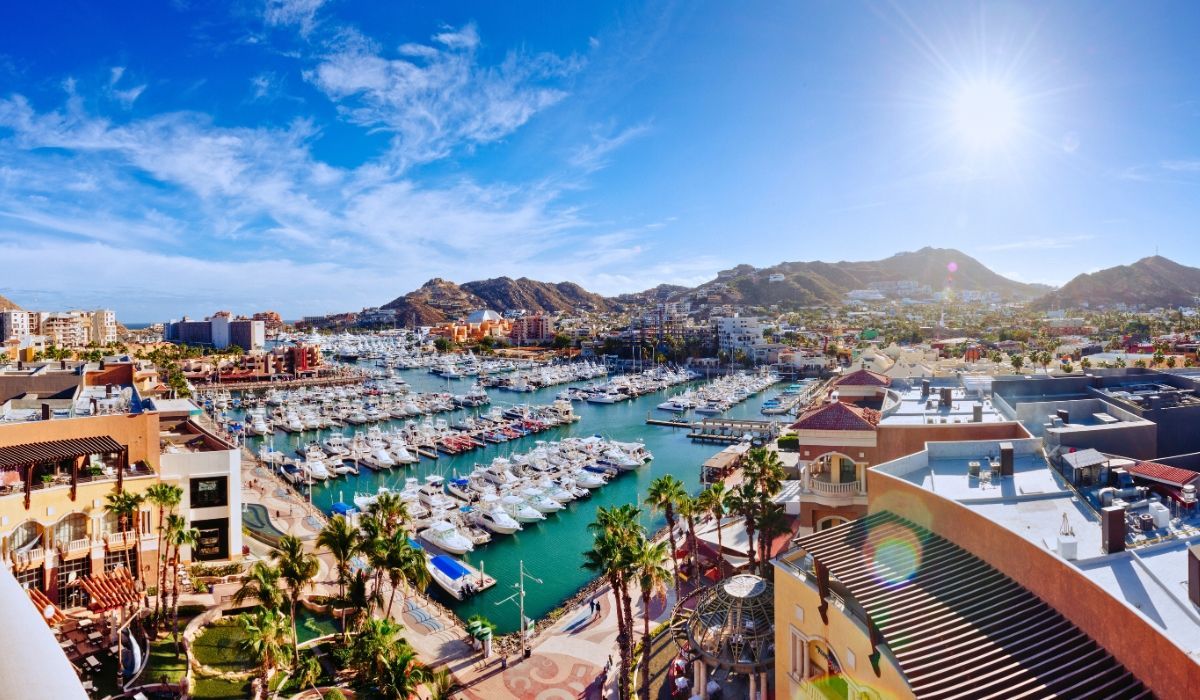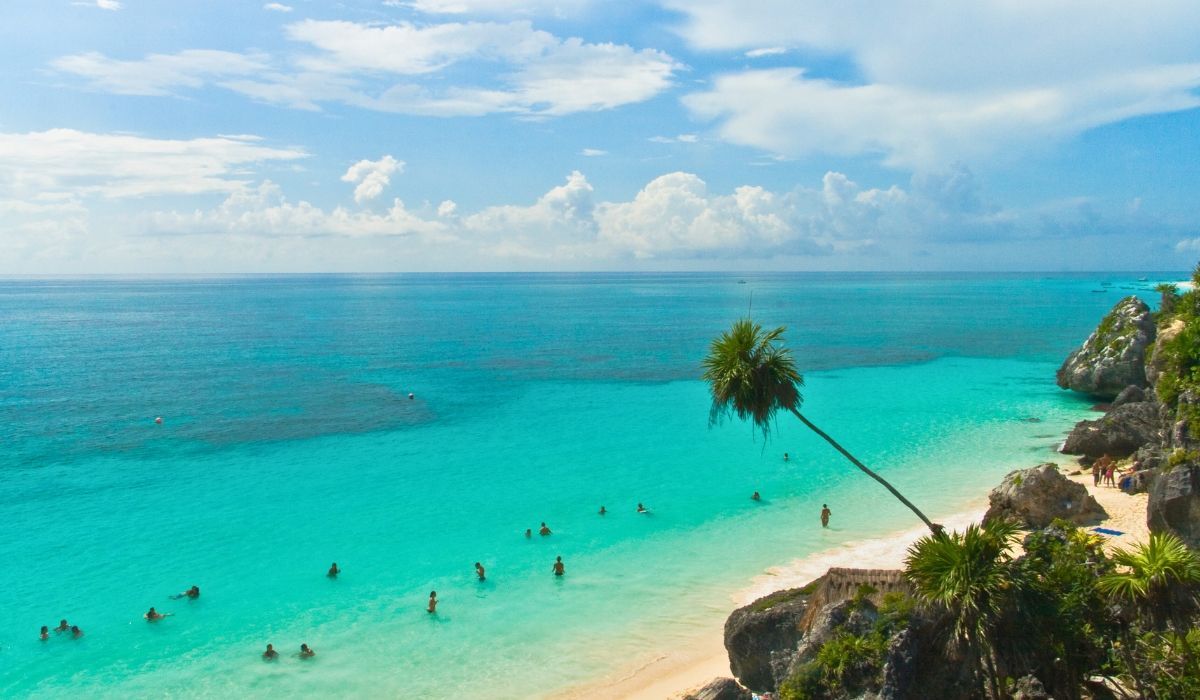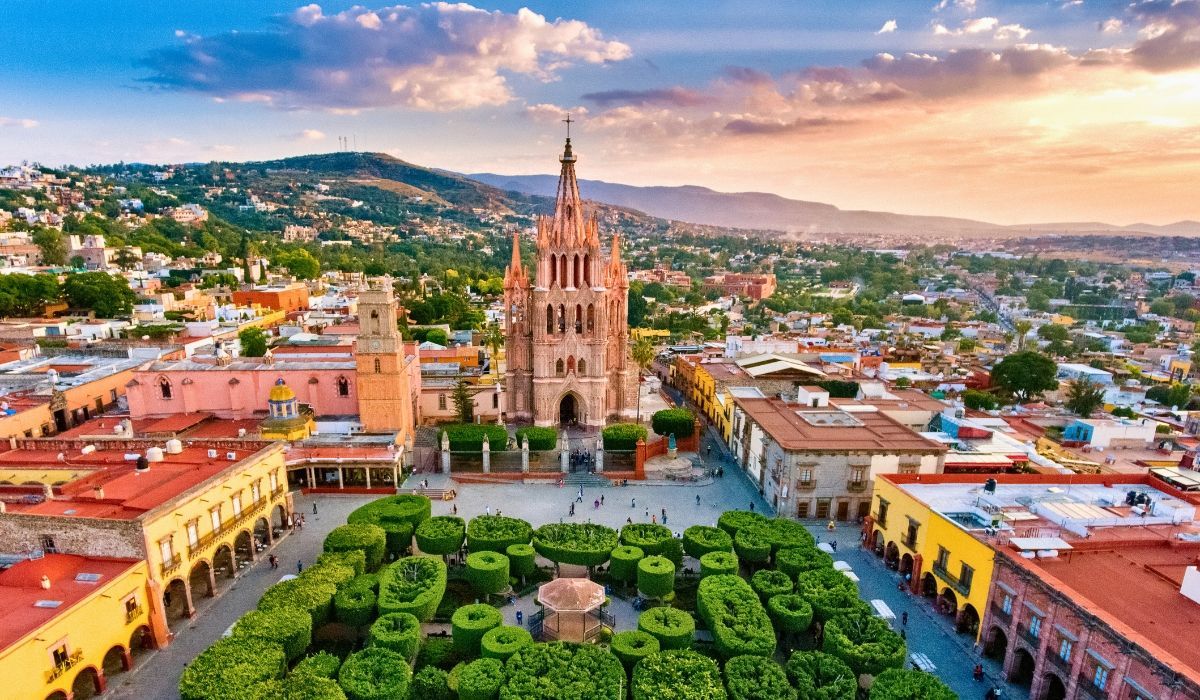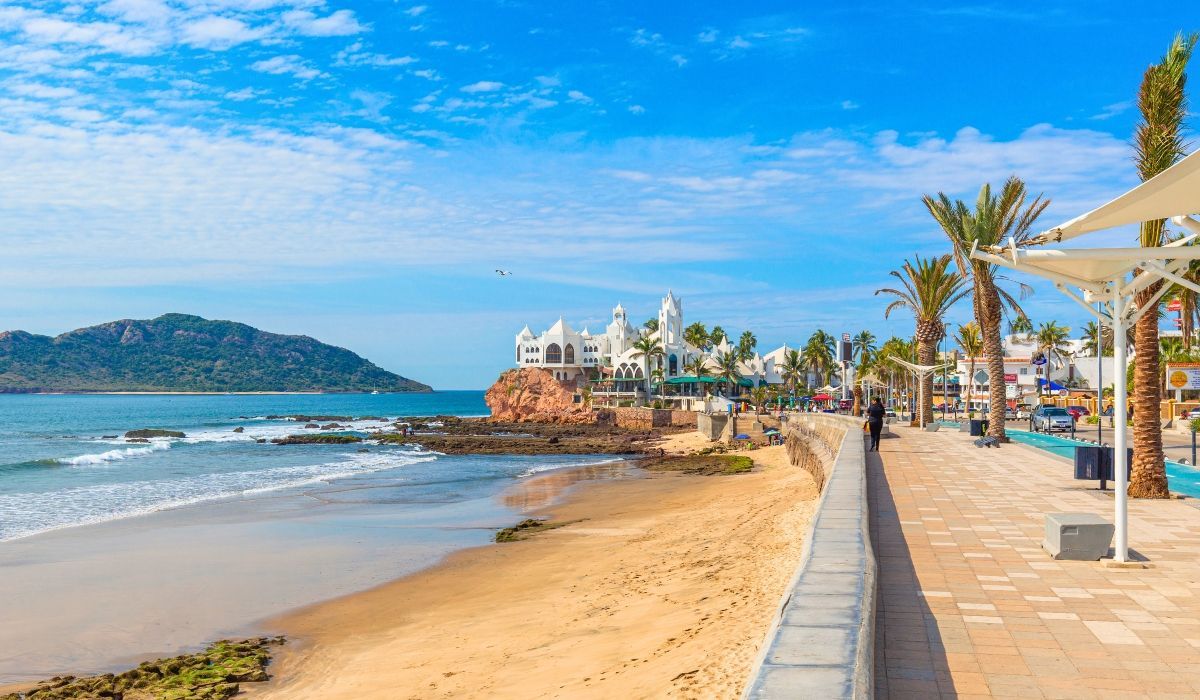Guide for Canadians Buying Property in Mexico
Buying property in Mexico from Canada? MTFX helps you transfer funds in CAD to USD. Whether it’s a beachfront condo in Puerto Vallarta or a colonial home in Mérida, MTFX offers low-fee, bank-beating exchange rates and secure transfers to Mexican notaries, escrow accounts, or fideicomisos. Lock in rates, save on conversions, and complete your cross-border property purchase with confidence.
Now is an excellent time to invest in property in Mexico, especially for Canadians seeking a vacation home to escape the harsh winters. Mexico offers an enticing opportunity for those looking to enjoy warm weather, stunning beaches, and vibrant culture. However, there are essential factors to consider before making a purchase. Let’s start with the basics: what types of properties can you buy in Mexico?
Should you consider purchasing a condo for convenience, or is a villa more aligned with your lifestyle? Mexican real estate offers a variety of options, including residential land, co-ownership properties, condominiums, and even boutique hotels. But what does the buying process look like for Canadians? It’s crucial to research thoroughly, as the purchasing process and legal requirements can vary by region. Understanding local regulations, ownership laws, and financing options is key to making an informed decision.
There are a few essential considerations such as choosing the best money transfer channels, understanding the motivations for purchasing abroad, and weighing the pros and cons of overseas property investments that you will learn from this guide. When it comes to financing your purchase, partnering with a trusted foreign exchange provider like MTFX can help you buy property in Mexico more cost-effectively, offering bank-beating exchange rates and lower fees on large transfers. Keep reading to gain valuable insights before taking the next step toward owning property in Mexico.
Can Canadians buy property in Mexico?
Absolutely! Mexico offers an easy opportunity for Canadians looking to buy property there. The key to purchasing a beautiful beachfront home in Mexico lies in a legal arrangement known as “fideicomiso.” This arrangement is designed to simplify the property acquisition process and make it accessible to Canadian buyers. Your real estate consultant can expertly guide you through this process, ensuring a smooth and enjoyable experience as you buy a house in Mexico as a Canadian.
For Canadians planning to buy property overseas, it’s also important to consider how you’ll handle the financial side of the purchase. You’ll need a reliable foreign exchange provider offering competitive rates and low fees to transfer large sums securely and cost-effectively. Partnering with a service like MTFX can help you save significantly on currency conversions, making your dream of owning property in Mexico even more affordable.

Why do Canadians typically purchase property in Mexico?
Long-term investment in real estate
When you buy property in Mexico, it is a long-term investment in Mexico real estate for Canadians. There is significant potential for the property value to increase if you plan to rent it out after purchasing it. The risk of investing in Mexico is low because of its stability and growth over the past few years.
Opportunity for vacationers, relocators, and Canadian snowbirds in Mexico
Mexico offers a wide range of opportunities for Canadians looking to buy property, whether for vacation purposes, as a winter escape for snowbirds, or for those considering moving to the vibrant country.
Vacationers - For Canadians seeking a second home or vacation property, Mexico is an attractive destination due to its proximity and variety. From the stunning beaches of Cancun to the charming towns like San Miguel de Allende, Mexico has something for every taste. Owning a property in Mexico can provide a convenient and cost-effective way to enjoy extended vacations, escape the harsh Canadian winters, and immerse yourself in Mexico's rich culture and diverse landscapes.
Snowbirds - Many Canadians prefer to spend their winters in warmer climates, and Mexico's pleasant weather makes it an ideal destination for snowbirds. Buying property in Mexico can offer a more comfortable and affordable alternative to renting year after year. With proper planning and legal considerations, Snowbirds in Mexico can enjoy an extended stay in their paradise.
Relocators - Many Canadians moving to Mexico consider the country their permanent residence. The relaxed pace of life, lower cost of living, and diverse expatriate communities are some of the factors attracting Canadians moving to Mexico. Owning property in Mexico can be a solid anchor for those seeking a new life in this beautiful country. Whether you're retiring, starting a business, or simply looking for a change of scenery, Mexico provides opportunities for a fresh start.
A home away from home in a country with all seasons
Buying property in Mexico offers several benefits to Canadians who live here or are looking for an overseas retirement home. A Mexican property allows you to enjoy all four seasons; this is not possible with most Canadian properties. With many Canadians moving south of the border in winter, there is an increasing demand for Canadian-friendly accommodations like homeownership or rentals.
Dynamic and vibrant lifestyle
The main reason to buy property in Mexico is the lifestyle. The people that live in the country are friendly, welcoming, and accommodating. Many Canadians take advantage of the great weather to live in this country part-time, escaping the cold Canadian winters. The exchange rate also makes it attractive to buy property in Mexico.
Tropical weather all year
The climate in Mexico is tropical, with a rainy and dry season and slight temperature fluctuation from season to season. The average temperature ranges from 21-27 degrees Celsius, with a fair amount of humidity. The hottest months are May through September, and the coldest are December through February.
What factors should you take into consideration when buying property in Mexico?
When buying property in Mexico, there are a few things you'll want to take into consideration. Here are just a few:
- The cost of the property - It's essential to ensure you know the property purchase cost before you buy it and that it's within your budget.
- The location - You'll want to consider where the property is located and whether or not it's in a desirable area.
- The condition of the property - It's essential to inspect the property before purchasing to ensure it's in good condition.
- The legal status of the property - You'll want to ensure the property is legally registered in Mexico.
The benefits of owning property in Mexico
Buying property in Mexico is a convenient and potentially profitable investment for Canadians. There are many benefits of owning property in Mexico. Here are some examples:
- You can buy a property for a fraction of the cost in Canada.
- Warm climate year-round so that you can enjoy the outdoors all year.
- Mexican properties come with a lower tax burden compared to Canadian properties.
- It's a great investment growth opportunity - Mexico property values have steadily increased over the past few years.
- There are many beautiful and unique areas of Mexico waiting to be explored.
Best places to buy property in Mexico
Are you a Canadian citizen who's been thinking of purchasing property in Mexico? Here are some of the most popular places for Canadians to buy property in Mexico:
Cancun, Quintana Roo
This coastal city is considered one of the most popular destinations for tourism in all of Mexico. It's also home to many hotels, restaurants, and tropical beaches (among other things!). Cancun offers the perfect mix of the cultural and artistic heritage that is synonymous with Mexican culture, as well as modern amenities found in most large cities, with sections like Hotel Zone and Playa del Carmen becoming popular tourist destinations on their right outside the bounds of Cancun itself, it's no wonder why more and more Canadians are looking to buy property in Cancun.
Puerto Vallarta, Jalisco
Located on the Pacific coast of Mexico, Puerto Vallarta, Jalisco is situated along the bay that shares its name with the city and the state in which it's located. It offers a lovely mixture of modern amenities, and a rich artistic history, and it's a tourist hotspot close to famous sites like the Tulum ruins, a unique culture. Puerto Vallarta is also home to many beautiful tropical beaches that have earned it the nickname "the Mexican Caribbean."
Playa del Carmen, Quintana Roo
Playa del Carmen has stunning beaches and a lush, tropical environment. It's a vibrant area combining modern amenities with traditional Mexican culture. It's a tourist hotspot close to famous sites like the Tulum ruins. The real estate market here is diverse, catering to Canadians buying condos in Mexico, apartments, and villas. The area is known for its strong expat community, which is particularly popular among Canadian retirees.
Puerto Peñasco, Sonora
Puerto Peñasco, or Rocky Point, is distinguished by its desert landscapes and beautiful beaches. It offers a quieter, more laid-back atmosphere than Playa del Carmen, with activities like fishing, golfing, and relaxing on the beach. Its real estate market is rising, offering beachfront homes, condos, and single-family houses, increasingly popular among North American retirees and investors.
San Miguel de Allende, Guanajuato
San Miguel de Allende is approximately 2 hours north of Mexico City in Guanajuato. It's a popular retirement destination for Canadians and others worldwide due to its mild year-round climate and beautiful, historic surroundings. It is home to many art galleries, museums, bars, restaurants, and cafes.
Cabo San Lucas, Baja California Sur
San Jose del Cabo and Cabo San Lucas are on the southern tip of Mexico's Baja California Peninsula. Situated on the Pacific Ocean, this destination is a popular tourist, surfing, and whale-watching hotspot. Beyond its natural beauty, Cabo is known for its luxury resorts, high-end golf courses, and vibrant nightlife. These features make it an appealing location for Canadians purchasing vacation homes or rental properties.
Tulum/Akumal
On the Yucatan Peninsula, you can find coastal towns with stunning beaches lined with resorts and hotels that attract visitors worldwide. This demand has made Tulum a highly desirable location for those purchasing property. Just north of Tulum, Akumal offers a quieter atmosphere, with serene beaches and excellent opportunities for snorkelling and diving in its crystal-clear waters. The growing popularity of both areas has led to a thriving real estate market, with many buyers investing in vacation homes or rental properties to take advantage of the region’s charm and appeal.
What's the best place to buy beachfront property in Mexico?
Mexico offers incredible opportunities to own beachfront property, with diverse options for different lifestyles and budgets. Destinations like Tulum and Puerto Morelos on the Caribbean coast are top picks for those seeking vibrant tourist hubs. Tulum is known for its luxury real estate, eco-friendly vibe, and long-term investment potential, while Puerto Morelos offers a quieter, community-focused lifestyle with charming beachfront homes. On the Pacific side, Puerto Vallarta stands out for its mix of traditional charm, modern amenities, and thriving real estate market, making it ideal for vacation rentals or permanent residences.
Whether you're exploring Puerto Morelos Mexico real estate for its laid-back appeal or diving into Tulum Mexico real estate for high-end investment opportunities, Mexico's coastal properties cater to a variety of needs. With its scenic beauty and strong tourist demand, Puerto Vallarta offers an excellent selection of homes to buy, from oceanfront condos to luxury villas. No matter your preference, Mexico's vibrant real estate market makes it one of the best places to buy beachfront property.
Pros and cons of buying property in Mexico
By weighing the following pros and cons, you can make an informed decision about buying property in Mexico. With the right planning and guidance, owning property in this vibrant country can be a rewarding investment.
Pros
Buying property in Mexico offers numerous advantages, making it an appealing choice for personal and investment purposes. Whether you're looking for a vacation home, a retirement retreat, or an income-generating asset, Mexico has something to offer for everyone.
Affordable prices: Mexico offers some of the most affordable beachfront and luxury properties compared to other countries, making it an attractive option for investors, retirees, and vacation homebuyers.
Strong rental potential: With a thriving tourism industry, properties in popular destinations like Tulum, Puerto Vallarta, and Playa del Carmen can generate significant rental income, especially during peak travel seasons.
Diverse locations: From bustling cities to tranquil beach towns, Mexico provides a wide range of property options to suit different lifestyles, whether for vacation, retirement, or investment.
Favourable climate: Mexico’s year-round warm climate and scenic coastlines make it a perfect destination for those seeking a tropical lifestyle.
Lower cost of living: In addition to affordable property prices, Mexico’s cost of living is significantly lower than in many other countries, making it ideal for retirees and long-term investors.
Cons
While Mexico presents many benefits for property buyers, it's also important to consider the potential challenges as well. Understanding these cons will help you prepare for a smoother buying experience.
Restricted zone regulations: Foreigners buying property in the Restricted Zone (near coastlines or borders) must use a fideicomiso (bank trust) or set up a corporation, which adds complexity and additional costs to the process.
Market volatility: The property market in tourist areas can be affected by seasonal demand and economic fluctuations, impacting rental income and resale value.
Maintenance costs: Beachfront properties require higher maintenance due to exposure to saltwater, humidity, and tropical weather, which can increase long-term expenses.
Cultural and language barriers: For foreign buyers unfamiliar with Mexican culture or language, navigating contracts, regulations, and local practices can be challenging without professional support.
How to buy property in Mexico as a Canadian?
Buying a property in Mexico as a Canadian involves several steps and considerations. It's recommended to consult with legal and financial professionals to ensure compliance with Mexican laws and regulations. Here's an overview of the process:
Step 1 - Research locations
If you are buying real estate in Mexico, start by researching different regions in Mexico to find the one that suits your needs and budget. Consider factors like climate, proximity to amenities, cost of living, and safety. Popular destinations for Canadians include Cancun, Puerto Vallarta, Playa del Carmen, and Mexico City.
Step 2 - Comply with legal requirements
As a foreigner, you can purchase property in Mexico; however, there are some legal requirements that you need to meet. A trusted legal advisor can guide you through the process of buying real estate in Mexico.
Step 3 - Hire a real estate professional
Hiring professionals experienced in Mexican real estate transactions is crucial, including a real estate agent, a notary public (notario público), and a lawyer. They will help ensure that the transaction complies with Mexican laws and regulations.
Step 4 - Have the property inspected
Before making an offer, inspect the property thoroughly for structural or legal issues. This step is essential to avoid future problems.
Step 5 - Make an offer
Once you find the right property, make an offer with your real estate agent. Negotiate the price and terms, and once both parties agree, you'll sign a purchase agreement (contrato de compraventa).
Step 6 - Conduct due diligence
Conduct a due diligence process to ensure the property has a clear title, all property taxes are paid, and there are no outstanding debts or liens.
Step 7 - Use an escrow account
Consider using an escrow account to hold the purchase funds until the transaction is complete. This adds an extra layer of security to the process.
Step 8 - Consider closing costs
Be aware that there are closing costs associated with buying property in Mexico. These can include notary fees, transfer taxes, and other expenses. Make sure you understand and budget for these costs.
Step 9 - Finalize the transaction
Sign the deed (escritura) and transfer the funds. The notary will register the property with the Public Registry of Property, and you’ll receive a copy of the deed as proof of ownership.
Step 10 - Determine ongoing costs
After buying the property, you will be responsible for ongoing property taxes (predial), maintenance, and applicable homeowner association fees.
Tips for purchasing property in Mexico
■ Research and visit potential areas multiple times. Prioritize safety and community fit.
■ Conduct a property survey and check for zoning issues. Verify any local development plans that might affect property value.
■ Consider property management services if not living in Mexico full-time.
■ Consider resale potential and market liquidity. Plan for inheritance and estate implications in Mexico.
■ Explore setting up a Mexican corporation if buying multiple or commercial properties.
■ Be aware of CAD/MXN volatility. Budget for additional costs such as legal fees, property taxes, maintenance, etc.
How to plan the closing of the property in Mexico?
■ Engage a reputable real estate agent experienced in Mexican property laws.
■ Hire a trusted notary public to handle the legalities of the property transfer.
■ Budget for additional costs, including transfer taxes, notary fees, and legal fees.
■ Consider opening a Mexican bank account for smoother financial transactions.
■ Obtain a permit from the Mexican Foreign Affairs Ministry if buying in a restricted zone.
■ Understand the need for a 'fideicomiso' (bank trust) for foreign buyers in restricted zones.
■ Ensure thorough documentation review, such as title deed and no-lien certificates.
■ Be aware of exchange rate fluctuations and their potential impact on final costs.
Living in Mexico as a Canadian: Key considerations
Buying a house in Mexico for a living offers a blend of affordability, vibrant culture, and a favourable climate. However, planning for legal, financial, and lifestyle adjustments is essential when living in Mexico as a Canadian for the long-term. Engaging with local communities and understanding the regional dynamics will significantly improve the experience.
Visas and residency
Canadians can stay in Mexico for up to 180 days on a tourist visa, making it convenient for short-term stays or initial exploration. A Temporary Resident Visa is an excellent option for more extended stays, valid for up to four years and requiring proof of income or investments. If you are buying real estate in Mexico and planning to live in Mexico indefinitely, consider obtaining a Permanent Resident Visa, which doesn’t require renewals but comes with more stringent financial requirements.
Cost of living
Living in Mexico is generally more affordable than in Canada, with lower housing, food, and healthcare costs. However, costs can vary significantly depending on the region. Coastal and tourist areas are more expensive, while inland regions offer even more affordable options, allowing for a comfortable lifestyle on a modest budget.
Healthcare
Mexico offers quality healthcare through both public and private systems. Private healthcare is top-rated among expatriates, offering high standards at a fraction of the cost compared to Canada. It’s advisable to secure health insurance, whether international or local, to cover medical expenses and ensure access to the best care available.
Language and culture
Spanish is the official language in Mexico, and while English is widely spoken in tourist areas, learning some basic Spanish can significantly enhance your experience. Embracing Mexico’s rich culture and traditions and adapting to a slower pace can make the transition smoother. Engaging with local communities is critical to genuinely enjoying the Mexican lifestyle.
Safety and security
Safety in Mexico can vary widely depending on the region. While many areas are perfectly safe, it’s important to research local conditions before settling down. Staying informed about local news and following safety guidelines, especially in unfamiliar places, will help you avoid potential risks.
Transportation
Mexico offers a variety of transportation options, with affordable and widely available public transport. However, the quality can vary, so assessing your needs is essential. Canadians can drive with their Canadian license for short stays, but obtaining a Mexican driver’s license might be necessary if you plan to reside in Mexico long-term.
Internet and connectivity
Reliable internet is available in most urban and expat areas, though speeds can vary in rural regions. Staying connected is relatively easy, with affordable mobile plans and good coverage nationwide. Whether working remotely or staying in touch with family, Mexico’s connectivity infrastructure supports a modern lifestyle.

Why do exchange rates matter when purchasing property in Mexico?
Canadian dollar to Mexican peso exchange rates are crucial when purchasing property in Mexico, especially for buyers from countries like Canada, whose currency differs from the Mexican Peso (MXN). Here's why exchange rates matter:
Impact on affordability
The strength of your home currency against the Mexican Peso directly affects how much property you can afford in Mexico. For instance, if the Canadian Dollar (CAD) appreciates against the MXN, your purchasing power increases, allowing you to afford more expensive properties or get more value. Conversely, if the CAD weakens, the cost of Mexican properties in terms of CAD will increase.
Budget planning and price fluctuations
Real estate transactions don’t happen overnight, and exchange rates fluctuate between starting your property search and closing the deal. This can significantly change the property’s price in your home currency, affecting your budget. Monitoring exchange rates and possibly engaging in hedging strategies to mitigate this risk is essential.
Transaction costs
When converting large sums of money for property transactions, even a tiny change in the exchange rate can significantly impact the total cost. Additionally, financial institutions may charge fees for currency conversion, which can add to the overall expense.
Ongoing expenses
If you have ongoing obligations in Mexico, like property maintenance, taxes, or mortgage payments in MXN, fluctuations in exchange rates will affect the amount you pay in your home currency. This can impact your long-term budgeting.
Return on investment
For investment properties, the exchange rate at the time of eventual resale or rental income repatriation can affect your return on investment. If your home currency strengthens against the MXN by the time you sell or collect rent, your returns in CAD might be lower than expected.
Long-term financial planning
For retirees or those planning to live in Mexico long-term, understanding the impact of exchange rates on their savings and income (like pensions) is crucial. A weakening home currency can reduce their purchasing power in Mexico.
Make sure you learn how to send money to Mexico from Canada to avoid additional costs, fees, and other problems. Choosing the right methods and strategies will help you save a significant amount of money that you can use for other aspects of your house, such as adding new furniture and installing contemporary lights, kitchen cabinets, and much more.
What is the cost of buying property in Mexico as a Canadian?
The cost of buying property in Mexico as a Canadian can vary depending on the location and type of property you want. Generally, the cost of real estate in Mexico is cheaper than in Canada, but it's important to research to ensure you are getting a good deal. Some of the costs you can expect to incur when buying property in Mexico include:
- Real estate taxes
- Notary and legal fees
- Transfer taxes
- Agent's fees
Investing in Mexico real estate for Canadians also means considering any applicable taxes or duties on the purchase. They usually depend on many factors, including location, property value, regulatory changes, etc. Your tax attorney or consultant can help you understand the Canadian tax implications of owning property in Mexico and take you through the process.
Sending funds to Mexico for maintenance and taxes after the purchase
When managing the ongoing expenses for your property in Mexico, the efficient transfer of funds is crucial. MTFX specializes in international currency exchange and cross-border payments, offering competitive exchange rates and lower transaction fees than traditional banks. This can lead to significant cost savings over time. The online platform provides a convenient way to send money, allowing you to manage and track your transactions easily.
Moreover, MTFX offers the ability to set up automated batch payments, which is ideal for recurring expenses like maintenance fees and property taxes. Our dedicated customer service ensures that your transfers are handled smoothly and any queries or concerns are promptly addressed, making managing your property in Mexico more hassle-free and cost-effective.
MTFX is your trusted international payment partner
Buying a property in Mexico can be an excellent investment for Canadians. The MTFX team is ready to help you get the best exchange rates and guide you through all your options, including CAD/MXN conversion. We’re happy to answer any questions, so don’t hesitate to message or call us.
Open an account today to enjoy simple, secure, cost-effective international payments to buy property in Mexico with MTFX as your partner.
FAQs
1. How do I transfer money to Mexico for a property purchase?
Use MTFX to securely send large amounts from CAD to USD.
2. Do I need a Mexican bank account to buy property?
No. MTFX transfers funds directly to the fiduciary bank, notary, or escrow account handling your deal.
3. Can I pay the fideicomiso (bank trust) setup fee through MTFX?
Absolutely. MTFX supports transfers to fiduciary banks for setup and annual maintenance.
4. Is it safe to wire large amounts to Mexico?
Yes, MTFX uses encrypted transfer networks and provides full tracking and compliance verification.
5. How long do CAD to USD transfers to Mexico take?
If you choose MTFX, CAD to USD transfer will usually take 24–48 hours depending on documentation and recipient bank.
6. What if my seller only accepts USD?
MTFX seamlessly converts CAD to USD and transfers to the recipient’s account.
7. Is it cheaper to use MTFX than my Canadian bank?
Yes, MTFX offers more competitive rates and lower fees- saving you thousands on large transfers.
8. Can MTFX help me pay my notary or real estate lawyer in Mexico?
Absolutely. MTFX enables secure, tracked payments to licensed professionals.
9. What is today’s CAD to MXN or USD rate?
Exchange rates for CAD to MXN or USD fluctuate constantly based on market conditions. Check live rates or use the MTFX calculator to see the latest rates and plan your transfers. MTFX offers competitive pricing to help you save on currency conversions.
10. Can I set alerts for optimal exchange rates?
Yes—sign up for currency rate alerts from MTFX to monitor CAD to USD or MXN movement.
Open an account today to enjoy simple, secure, cost-effective international payments to buy property in Mexico with MTFX as your partner.
Related Blogs
Stay ahead with fresh perspectives, expert tips, and inspiring stories.

Keep updated
Make informed decisions
Access tools to help you track, manage, and simplify your global payments.
Currency market updates
Track key currency movements and plan your transfers with confidence.
Create an account today
Start today, and let us take the hassle out of overseas transfers.
